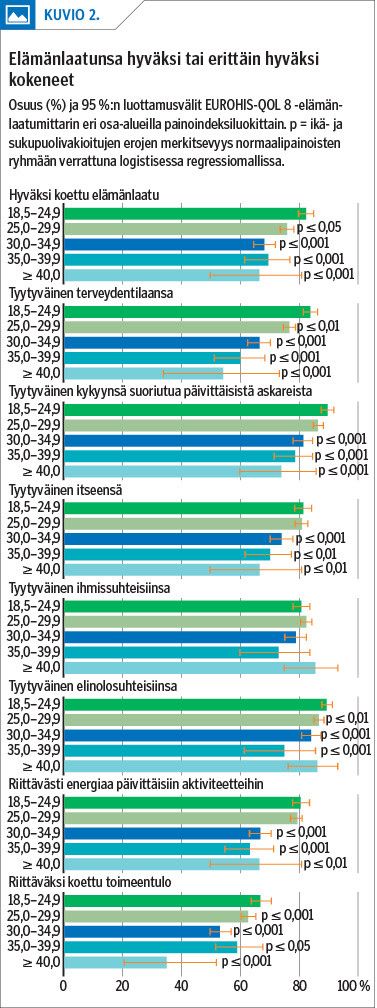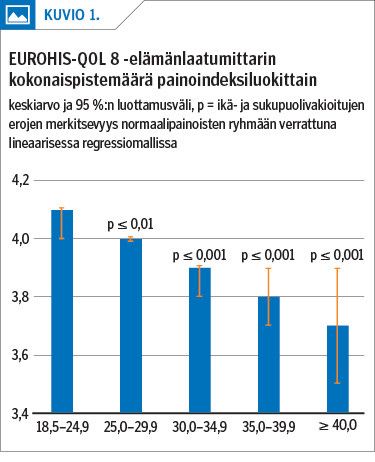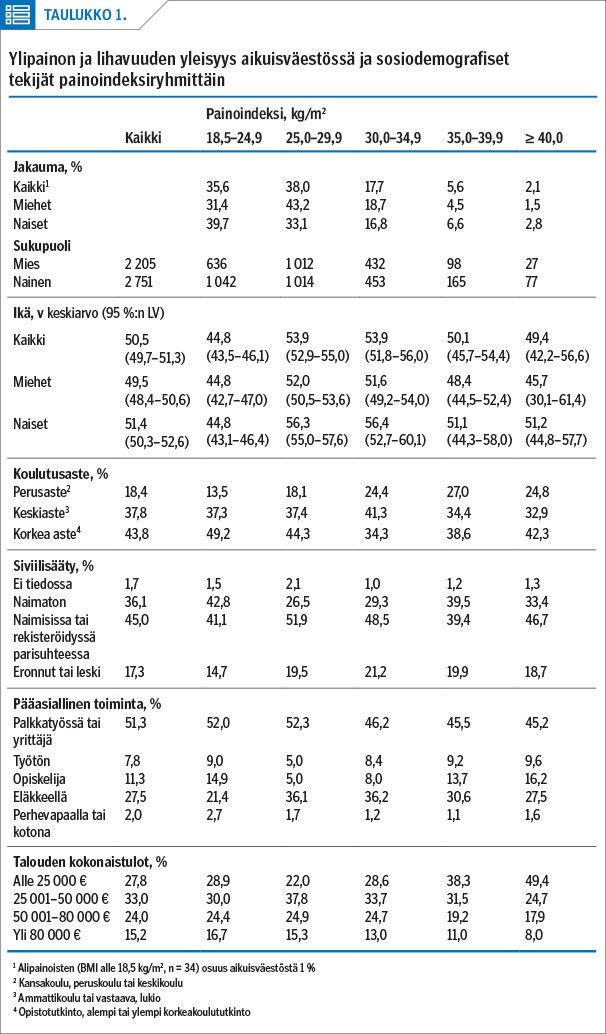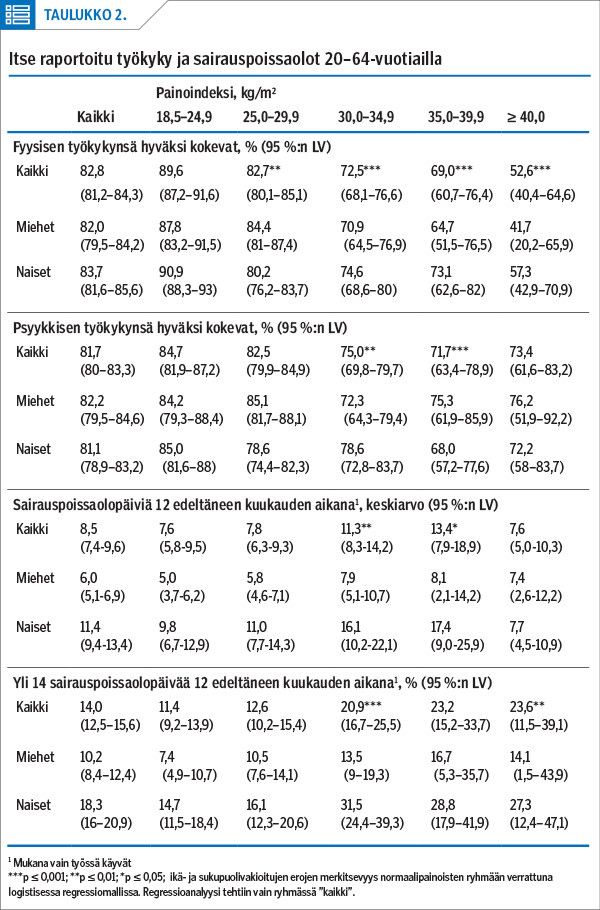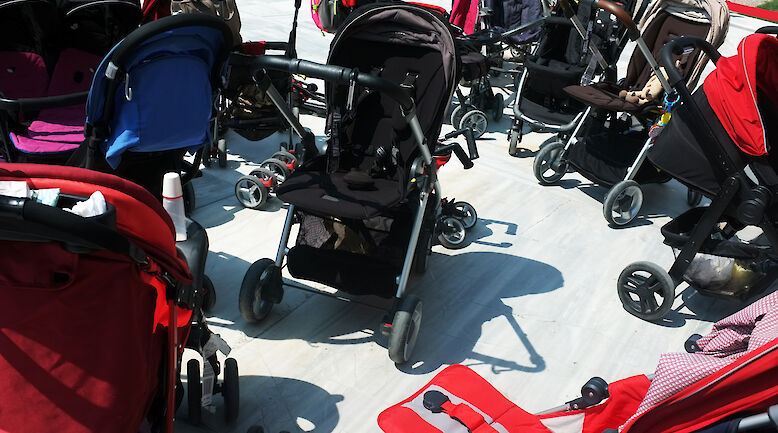Impact of obesity on quality of life and working ability in the Finnish adult population

Background Obesity presents a significant health and economic burden globally. It is a major risk factor for a number of chronic diseases, and has negative implications for mental and social health and quality of life (QOL). The aim of this population-based study was to characterize the impact of obesity on QOL and working ability among adults with obesity in Finland.
Methods The study population consisted of 4,956 randomly selected adults (≥ 18 years) who underwent clinical examination as part of the FinHealth 2017 study. QOL was assessed in different BMI groups using the EUROHIS-QOL 8-item index validated measure. Self-perceived physical and psychological working ability, and days of work absenteeism, were evaluated using a questionnaire.
Results Individuals with overweight and obesity had significantly lower QOL than normal-weight individuals. Individuals with obesity had lower perceived physical and psychological working ability and more self-reported work absence days during the past year.
Conclusions Obesity has a negative impact on QOL and self-perceived physical and psychological working ability. Early and effective treatment of obesity is essential for preventing comorbidity and improving functional ability and QOL in individuals with obesity.
